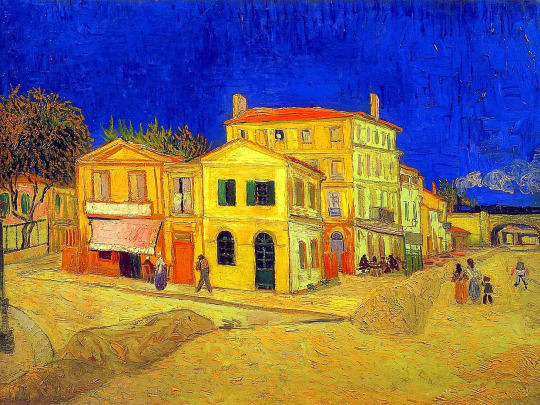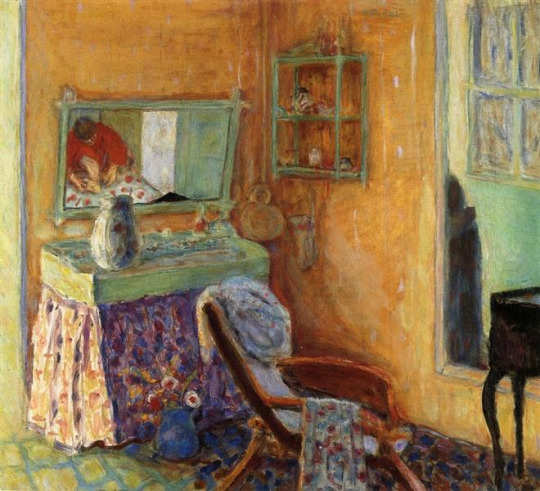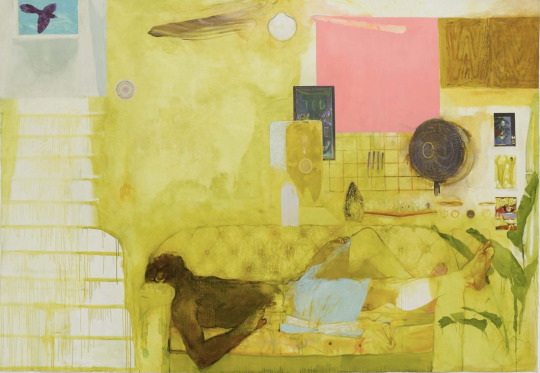#joyce peseroff
Text
favourite poems of march
miki schumacher de / re / formation
craig arnold pitahaya
brian turner here, bullet: “what every soldier should know”
eileen myles not me: “peanut butter”
noor hindi breaking [news]
jane hirshfield my species
annesha mitha you are a tyrannosaurus rex
mary ruefle among the musk ox people: poems: “blood soup”
alice notley mysteries of small houses: “as good as anything”
nomi stone on world-making
k. silem mohammad poems about trees
franz wright the break
fred marchant the looking house: “night heron maybe”
carl phillips cortège: “domestic”
alexa luborsky connotations
bruce smith the other lover: “to the executive director of the actual”
nikky finney head off & split: “the aureole”
alice fulton personally engraved
amy beeder because our waiters are hopeless romantics
chiagoziem jideofor self-preservation
carol muske-dukes skylight: “the invention of cuisine”
joyce peseroff a dog in the lifeboat: “april to may”
rigoberto gonzalez other fugitives and other strangers: “other fugitives and other strangers”
toi derricotte the undertaker’s daughter: “my dad & sardines”
tarfia faizullah yr not exotic, but once ya wanted to be
jenny george the artist
jack spicer a second train song for gary
victor hernandez cruz maraca: new and selected poems 1966-2000: “red beans”
xi chuan power failure
jean valentine door in the mountain: new and collected poems, 1965-2003: “sanctuary”
duane niatum drawings of the song animals: new and collected poems: “consulting an elder poet on an anti-war poem”
kofi
#tbr#miki schumacher#de / re / formation#annesha mitha#you are a tyrannosaurus rex#franz wright#the break#joyce peseroff#a dog in the lifeboat#april to may#alice notley#mysteries of small houses#as good as anything#chiagoziem jideofor#self-preservation#connotations#alexa luborsky#alice fulton#personally engraved#noor hindi#breaking [news]#here bullet#brian turner#what every soldier should know#fred marchant#the looking house#night heron maybe#jenny george#xi chuan#power failure
182 notes
·
View notes
Text

Joyce Peseroff // excerpt from "April to May" [ID in alt text]
Full poem here
3 notes
·
View notes
Text
Rock Records
Rock Records
By Joyce Peseroff
I'm selling my old rock records,
the reggae and the Dead,
the Beatles and bands
no one heard after the Amazing
Kathy Dalton became less so
and Airto—busted for possession,
his album's face behind ten fingers
blacked with stationhouse ink—
deported. A Stone retired,
Mick past fifty, Van Morrison—
composer of the world's best
Celtic fuck music—gone spiritual,
while "Peaceful Easy Feeling"
sells Prozac, and the trippy
paisley vinyl of Dave Mason's
"Alone Together," Big Brother's
funky R. Crumb cover (fat nipply Janis
dragging that ball and chain) are quaint
collectibles, like Fiestaware or bottles
from defunct breweries; useful things
no one uses anymore, worth money.
2 notes
·
View notes
Text

NEW FROM FINISHING LINE PRESS: Restless for Words: Poems by DeWitt Henry
PREORDER NOW: https://www.finishinglinepress.com/product/restless-for-words-poems-by-dewitt-henry/
Former Shakespeare teacher, novelist, memoirist, and founding editor of Ploughshares, DeWitt Henry in his first full collection of poems goes in varied and unexpected directions, from “mapping the heart” to meditating on the DNA of everyday words such as “candidate.” He delights in quick-witted, gymnastic free association, contrary directions of thought and argument, and freely negotiates between the colloquial and literary, the personal and the cultural, and mixes moral searching with a benign, self-depreciating humor. His favorite pronoun is “we.” A deeply lived, engaging, and original debut.
DeWitt Henry’s recent prose collection is ENDINGS & BEGINNINGS: FAMILY ESSAYS (MadHat Press, 2021). Poems have appeared in Constellations, Ibbetson Street, On the Seawall, Plume, American Journal of Poetry and others. He was the founding editor of Ploughshares and is Prof. Emeritus at Emerson College. Details at www.dewitthenry.com .
ADVANCE PRAISE FOR Restless for Words: Poems by DeWitt Henry
DeWitt Henry’s lively riffs reveal how restless language can be as it shimmers and shifts from noun to verb, from history to headlines. Henry urges, like Sir Philip Sydney, to “look in thy heart and write,” as his chosen words, examined like life, fashion a bittersweet biography. These poems—each a collage of feeling and thought—are witty, satisfying, and always revealing.
–Joyce Peseroff, author of Petition
DeWitt Henry is best known and universally admired as the founder of Ploughshares and as an eloquent writer of fiction and non-fiction. So it should now come as no surprise that he’s reinvented a lost genre of poetry. These poems, on an astonishing array of subjects, are the wittiest, most verbally playful, most thoughtful and touching and personal essay-poems since Alexander Pope. DeWitt Henry has welcomed poets to his world for decades. It’s a great pleasure to welcome him to the world of poetry.
–Lloyd Schwartz, Pulitzer Prize-winning critic and author of Who’s on First? New and Selected Poems
Restless for Words is a huge gathering and sorting process by a writer who has thought deeply about a great many things. It’s a repository for the best answers he’s been able to come up with in a lifetime of inquiry and curiosity, guided by a commitment to clarity and to trying to see what’s the right thing to do…. My favorites are those that explore the etymological and let themselves riff on the resulting associations, a strategy that Henry used to great purpose in Sweet Marjoram. These poems are solid, and their complications stanza to stanza arise from wonder. Henry wastes no time on the mucker pose, the ‘Aw shucks gee whiz’ persona. He takes life—and writing—and learning—much too seriously for that. And I, for one, am grateful.
–Richard Hoffman, author of Noon Into Night
Please share/repost #flpauthor #preorder #AwesomeCoverArt #read #poems #literature #poetry
#poetry#preorder#flp authors#flp#poets on tumblr#american poets#finishing line press#small press#book cover#books#publishers#poets#poem#smallpress#poems
2 notes
·
View notes
Text
Today’s Poem
Our Vanishing
--Joyce Peseroff
Thanks, no thanks, to eternal life. What pleasure
watching my old house broken-beamed, grey
elephant brought to its knees? White ash��gone
the way of trilobites and horsehair fern,
even the nuclear-proof cockroach in deep-freeze.
Cueballs knock each other randomly; reverse.
the tape and movement looks the same, illustrating
the end of time: things happen, but don't matter.
And if Lethe strips you like a swimmer
from his trunks, where will "I" be? If Heaven
without you is Hell, how will I know? A forever
of no-never-mind does not appeal, God's heart
a cold, contracting cinder. Give me the white light,
the slit of split-second calm, and knowing over is over.
1 note
·
View note
Text
April to May
by Joyce E. Peseroff
Issue no. 75 (Spring 1979), The Paris Review
1.
It is cold enough for rain
to coagulate & fall in heavy drops.
Tonight a skin of ice will grow
over the bones of the smallest bush,
making it droop like the wrist
of someone carrying a heavy suitcase. This moving on,
from season to season, is exhausting
& violent, the break from the Berlin Wall
of winter especially. Like a frostbitten
hand coming to life, I color
first with warmth,
then with pain. Thawing, letting
the great powers go
their own way, in rivers & in flesh,
frightens me, as this day
warns me of an icy night.
2.
Each year I am astonished
at the havoc we have wrought
on other lives: fathers
made tiny by cancer, a mother
swollen around a bad heart
“brought on by aggravation.”
To suffer is to do something new
yet always the same—
a change of life
from the sexual dread. Some women
wish they were men, some men
wish they were dead; still,
there is coin in suffering.
Suffering makes us
rich as Croesus in his golden tears,
& we are rarely hated for it.
This coin I store in a purse
made of mother’s milk
& flesh, which God says I must
I use it to seek pleasure.
3.
Walking around with this thing in me
all day, this loving cup
full of jelly, waiting for you
to come home—seven o’clock,
eight o’clock, eight-thirty.
What could be more important
than love? I can’t imagine; you can.
Not a good day, not about to get better.
4.
The bird comes complete
with heart, liver, & neck-bone
wrapped chastely in white paper.
Still half-frozen,
the legs are hard to separate.
Inside, wax paper sticks to the ribs.
I reach like a vet delivering pigs
or a boy finger-fucking a virgin.
5.
Air the same sweet
temperature inside the house
as outside the house.
Stepping up from the cellar
with an armful of sheets
I listen for the dirge of flies
under the chittering birds, both
painfully loud. There is a stridency
that’s stubborn in a life
grown by inches: the fat
little fingers of buds bursting,
ugly ducklings, the slow war
of day against night.
As I pin the swelling sheets
with clothespins damp & too
narrow at the mouth, I wonder how
flies know to come out
to feed the birds, & feast themselves
on the new stillborn, this stubborn
great chain of being. . .
#Joyce E. Peseroff#poetry#seasons#change#love is important#hurtful#verse-a-day#poems#love poem#animals#authors#new poets#connections#universe#angsty#flowers growing#bodies#literature#paris review#april#may#months#time#literary
1 note
·
View note
Text
Meditative Weekend of Poetry: Joyce Peseroff

Abandon the path, even once, if only to pee, and you’re lost.
First text, undelivered -- “Im in somm trouble. Call AMC. Somewhere north of woods road” --
When I missed a blue marker the hour before sunset, I wasn’t afraid. Our land, after all. At worst, I could about-face and follow the waddle my snowshoes tracked.
Next day-- “Off trail 3 or 4 mi. Call police” -- to her husband, never received.
But I kept searching. Air whisked between polar fleece and bare skin. I began to sweat.
In the woods, Pan rules. Follow his pipes and wander in circles.
Two days later, when she missed an off-trail meet-up, game wardens stamped through the brush, blowing emergency whistles, calling her name.
Can I understand the pain of others only by suffering, which I hate?
After three weeks, in a sleeping bag -- dull with starvation, exposure -- I know she knew she was dying.
Or is suffering a thicket with a bird inside, every other singer competition for a mate?
Clouds covered the sun. Ice pellets flung by my ski pole rolled and scribbled as they slid down a drift, An oak rattled three leaves on a single stem.
“When you find my body, please call.” -- discovered on a Navy training base.
Sun dropped below the clouds. A silver arrow glinted from a blue marker, lower on the oak than I expected, three feet of snow girding its trunk.
A moment of terror. Ten minutes. Nothing, but something. Nothing. Something.
--”my husband George and my daughter Kerry” -- notebook removed two years later, two miles west of the trail, inside her blue tent.
Photos of items placed outside the tent: a bandana, rosary, birthday candles, lighter, dental floss, a sewing kit, and two plastic water bottles, one half-full.
(”Missing Hiker Kept Journal of Her Ordeal”, Salamander #47)
(Suggestions: To me this poem is the quintessence of collage. The title is the title of an article from the Boston Globe. The poem is a list, but it is punctuated with quotes from the journal. Furthermore, it is an inventory of items. Furthermore, it is a narrative that takes plasce outside the subject of whom the structure of the poem is based (in terms of the subject’s journal, the organization of the poem is based on quotations from her journal). The poem takes steps outside of this particular spatio-temporal context to offer omniscient details that she would never know, such as circumstances that take place after her death, how she is discovered. The collage, then, is also a particular way of looking at time. In one sense, it is a look at the present moment in excruciating detail. In another, it is a removal of pathos from time. A look at circumstance from a mountain top. Although collage can often be a collection of many facets of the present moment, it is also (in some forms) a violation of this unwritten contract with the present moment that some collages seem to perform. This happens especially in the final line where an inventory of the missing hiker’s effects is detailed as she laid them out (we assume). In terms of all this, where is the center of the poem? Try this: upon your own reading, pick a type of narration as a center and re-edit the poem in terms of this. It is inventory? Is it journal entries? Is it the omniscient narration of the hiker’s fate? What is lost by the removal of one type to the prejudice of another type from the poem? Is anything lost?)
0 notes
Text
NO FEE Submission call + editor interview - Woven Tale Press, DEADLINE: Open year-round
NO FEE Submission call + editor interview – Woven Tale Press, DEADLINE: Open year-round
The Woven Tale Press is an online magazine founded by Editor-in-Chief Sandra Tyler. WTP is a free monthly magazine, is always open for submissions, and looking for a wide range of art and writing, including videos, press features, creative writing, and visual arts. They also run an annual contest that does require a fee and has a deadline of September 15, 2018. Scroll down on their Submittable…
View On WordPress
0 notes
Text
The Ray Bradbury Challenge: Day 405
The Ray Bradbury Challenge: Day 405
Short story: Krace is Not a Highway? by Scott Vaynur, from Strange Horizons, October 2017. Recommended.
Poem: Rock Records by Joyce Peseroff, listened to on the Poem of the Day podcast, from October 2017. Recommended.
Essay: Harem Wall Painting Fragments, listened to on the BBC’s A History of the World in 100 Objects. Highly Recommended.
What is the Ray Bradbury Challenge?
View On WordPress
#books#challenge#essay#Joyce Peseroff#poetry#Ray Bradbury Challenge#reading#Scott Vaynur#Strange Horizons
0 notes
Text
A Dog in the Lifeboat (Carnegie Mellon Poetry Series) [paperback] Peseroff, Joyce https://www.amazon.com/gp/product/0887481140/ref=cx_skuctr_share?smid=A1J7ZDK32VF5IP
0 notes
Note
Hello, I hope you are well. Could I request the feeling of homesickness for a place you've never truly known?








lun lu spring longings at ch'ang-an \\ vincent van gogh the yellow house (1888) \\ marilyn nelson the homeplace: “the house on moscow street” \\ sj axelby \\ joyce peseroff eastern mountain time: “museum of childhood” \\ pierre bonnard interior (1913) \\ kwame davis ode to the clothesline \\ jennifer packer
kofi
#asks#anonymous#mine#my webweaving#webweaving#web weaving#webweave#web weave#web#webs#ww#parallel#parallels#parallelism#compilation#compilations#intertextuality#comparative#comparatives#lun lu#van gogh#vincent van gogh#marilyn nelson#sj axelby#joyce peseroff#jennifer packer#kwame davis
242 notes
·
View notes
Text
Peseroff Prize- Breakwater Review
The Peseroff Prize honors Joyce Peseroff’s work as a poet, teacher, editor, innovator, and mentor. She helped found the MFA Program in Creative Writing at the University of Massachusetts Boston, served as its first director, and retired from teaching in 2014.
Submit up to three poems and a $10 entry fee. There are no restrictions on content or form: “it’s all poetry.” Poems should be previously unpublished. We accept simultaneous submissions, but please notify Breakwater if submission is accepted elsewhere.
0 notes
Text
Joyce Peseroff reviews HOW HER SPIRIT GOT OUT
Joyce Peseroff, author of five books of poetry, most recently Know Thyself (Carnegie Mellon, 2016), wrote a knockout review of How Her Spirit Got Out. Here’s a peek at the beginning, and then a bit from the end:
Krysten Hill’s chapbook is as fresh as today’s headlines. It calls out a culture where women continually risk abuse, invisibility, and soul-killing erasures, and where black women are particularly threatened….
Hill’s poems include allusions to foremothers like Audre Lorde, Sylvia Plath, and Zora Neale Hurston. Like Lorde, she responds to sexism, racism, and injustice with passion and perception. From Plath, she’s learned to figure the details of her life in images that are fierce and arresting. Hill understands the power of narrative and savor of vernacular speech, both loved by Hurston. The result is a voice that is beautiful and raw, intimate yet public, both confident and vulnerable.
We couldn’t agree more, and there’s no time like the present to head over to the Aforementioned shop and pick up your copy of How Her Spirit Got Out.
Joyce Peseroff reviews HOW HER SPIRIT GOT OUT was originally published on Aforementioned Productions
0 notes
Text

FINISHING LINE PRESS BOOK OF THE DAY:Car Poems by Maureen McElroy
https://www.finishinglinepress.com/product/car-poems-by-maureen-mcelroy/
RESERVE YOUR COPY TODAY
Maureen McElroy was born and raised in Boston, Massachusetts as one of seven children in a close-knit Irish family. She attended Boston University and Emerson College, where she received an MFA under Joyce Peseroff and Bill Knott. Her work has appeared in numerous literary journals including Mothers Always Write, Trampset, 10 Literary Journal, Literary Hatchet, and Fickle Muses. She taught English and Latin for a number of years before entering a career in real estate. She owns Jamaica Hill Realty in Boston, MA and currently lives in Milton with her husband and son.
ADVANCE PRAISE FOR Car Poems by Maureen McElroy
In Maureen McElroy’s chapbook Car Poems, the title poem signifies her playful, witty angle of vision, invoking such comparisons as “Cup holders and couplets” and “Stop signs and stanza breaks.” She has an imagination that comes alive in lines like this: “and I dreamt I was cheating/on my husband with my husband.” McElroy has a unique take on the quotidian experience of relationship pain: “1 just sit around naked/growing body hair.” That offbeat deflection is part of an emotional and aesthetic strategy that moves these poems into the music of language and resilience.
–Teresa Cader, author of History of Hurricanes, The Paper Wasp, and Guests
McElroy’s journey in “Car Poems” is a courageous and hard-fought struggle to emerge whole at the end of a troubled relationship. In a voice witty and humorous, she warns “Some people have sex in cars/ . . . but I write poems . . .1 may be pulled over/for driving while writing poems.” The opposing pulls of sensuous longing and anger are teased out as each poem moves deeper into what was the marriage, and the reimagining of self that follows. With a keen eye for memory’s apt details, McElroy offers tender glimpses of childhood and parents. She works to celebrate her womanhood, finding in Ruth Bader Ginsburg an inspiring model. The distance traveled here is considerable, and love’s echoes reverberate throughout.
–Holly Guran, Author of River of Bones and Twilight Chorus
PREORDER YOUR COPY TODAY
https://www.finishinglinepress.com/product/car-poems-by-maureen-mcelroy/#poets #poetry #poetrybooks #poems
0 notes
Text
Quoted
THE HARDNESS SCALE—by Joyce Peseroff
“Diamonds are forever so I gave you quartz
which is #7 on the hardness scale
and it’s hard enough to get to know
anybody these days
if only to scratch the surface
and quartz will scratch
six other mineral surfaces:
it will scratch glass
it will scratch gold
it will even
scratch your eyes out one morning—
you can’t be too careful.
Diamonds are industrial
so I bought a ring of topaz
which is #8 on the hardness scale.
I wear it on my right hand, the way it was
supposed to be, right?
No tears and fewer regrets
for reasons smooth and clear as glass.
Topaz will scratch glass,
it will scratch your quartz,
and all your radio crystals.
You’ll have to be silent the rest of your days
not to mention your nights. Not to mention
the night you ran away very drunk very
very drunk and you tried to cross the border
but couldn’t make it across the lake.
Stirring up geysers with the oars
you drove the red canoe in circles,
tried to pole it but your left hand
didn’t know what the right hand was doing.
You fell asleep
and let everyone know it when you woke up.
In a gin-soaked morning (hair of the dog)
you went hunting for geese,
shot three lake trout
in violation of the game laws,
told me to clean them and that
my eyes were bright as sapphires
which is #9 on the hardness scale.
A sapphire will cut a pearl
it will cut stainless steel
it will cut vinyl and mylar
and will probably cut a record this fall
to be released on an obscure label
known only to aficionados.
I will buy a copy.
I may buy you a copy
depending on how your tastes have changed.
I will buy copies for my friends
we’ll get a new needle,
a diamond needle,
which is #10 on the hardness scale
and will cut anything.
It will cut wood and mortar,
plaster and iron,
it will cut the sapphires in my eyes
and I will bleed
blind as 4 A.M. in the subways
when even degenerates
are dreaming,
blind as the time you shot up the room
with a new hunting rifle
blind drunk
as you were.
You were #11 on the hardness scale
later that night
apologetic as you worked your way up
slowly from the knees
and you worked your way down
from the open-throated blouse.
Diamonds are forever
so I give you softer things.”
2 notes
·
View notes
Note
Whats ur favorite poems or poets? Im trying to find more :D
mary oliver is my absolute favourite at the moment
banjo patterson (the man from snowy river)
shen (noodles)
ali cobby eckermann (thunder raining poison; black deaths in custody)
jeanette winterson
oodgeroo noonuccal (municipal gum)
ocean vuong (DetoNation)
henry kendall bell birds
richard siken (crush: "saying your names)
anne carson (glass, irony, and god: "the glass essay")
samuel wagan watson a one ended boomerang
anna akhmatova
les murray (the widower in the country; self and dream self)
louise glück (archaic fragment)
joyce peseroff (eastern mountain time: "ark in the field")
edward harrington (there's only the two of us here)
geoff page two signatures
kofi
#please reblog with your favourites i'm always on the lookout for new poems/poets!!!!#anonymous#asks#linked some of their poems so you can check them out!!#can you tell where i'm from by these poets lol#hopefully there's some new people in here for you!!
96 notes
·
View notes